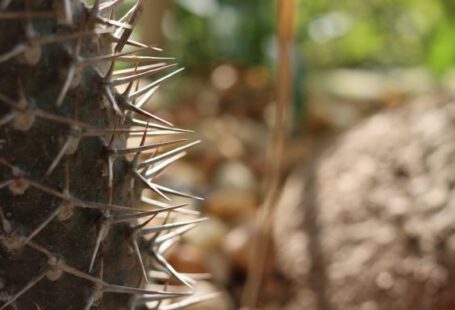Weeds are the bane of every gardener’s existence. They compete with our beloved plants for water, nutrients, and sunlight, and can quickly take over a garden if not kept in check. While chemical herbicides may seem like an easy solution, they can harm the environment and our health. Fortunately, there are several organic methods that can help control weeds and keep your garden thriving.
Mulching: A Barrier Against Weeds
One of the most effective ways to control weeds in an organic garden is through the use of mulch. Mulch acts as a barrier, preventing weed seeds from germinating and blocking sunlight from reaching existing weeds. Organic mulches, such as straw, wood chips, or shredded leaves, not only suppress weeds but also improve soil fertility as they break down over time. Apply a thick layer of mulch around your plants, making sure to leave space around the stem to prevent rotting.
Hand Pulling: Get Down and Dirty
When it comes to controlling weeds, sometimes the simplest method is the most effective. Hand pulling weeds may be labor-intensive, but it allows you to remove weeds at their roots, ensuring they won’t grow back. The best time to hand pull weeds is after a rainfall or watering, when the soil is moist and the weeds come out more easily. Be sure to remove the entire plant, including the roots, to prevent regrowth.
Cultivation: Tilling the Weeds Away
Cultivation is another organic method that can help control weeds. By using a hoe or cultivator, you can disturb the soil surface, cutting off the weeds’ roots and preventing them from growing further. Cultivation is most effective when done when the weeds are small and the soil is dry, as this will prevent the weeds from re-rooting. Be careful not to cultivate too deeply, as this can bring buried weed seeds to the surface, leading to more weed problems in the future.
Cover Crops: Outcompeting Weeds
Cover crops are not only beneficial for soil health but can also help control weeds. By planting fast-growing cover crops, such as buckwheat or clover, you can outcompete weeds for resources, effectively smothering them. Cover crops also help to improve soil structure and fertility, making them a win-win solution for organic weed control.
Companion Planting: Weed-Fighting Allies
Companion planting is the practice of planting certain plants together to benefit each other. Some plants have natural weed-fighting properties and can help suppress weeds in the garden. For example, planting marigolds can deter nematodes, which are microscopic worms that can damage plant roots. Additionally, planting tall-growing crops, such as corn or sunflowers, can shade out weeds and prevent them from getting the sunlight they need to grow.
Regular Maintenance: Stay Ahead of the Weeds
Prevention is key when it comes to controlling weeds in an organic garden. Regularly inspect your garden for any signs of weed growth and take action immediately. By staying on top of weed control and addressing them when they’re small, you can prevent them from spreading and becoming a larger problem. Regularly mulching, hand pulling, and cultivating can help keep your garden weed-free and thriving.
In conclusion, controlling weeds in an organic garden doesn’t have to be a daunting task. By using methods such as mulching, hand pulling, cultivation, cover cropping, and companion planting, you can effectively control weeds without the use of harmful chemicals. Remember to stay proactive and regularly maintain your garden to prevent weeds from taking over. With these organic weed control methods, you can enjoy a beautiful and bountiful garden while being kind to the environment.





